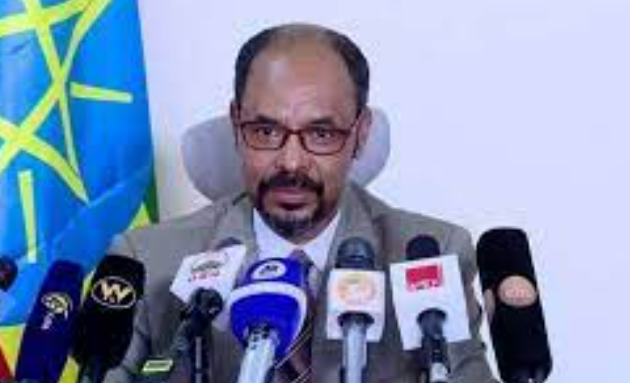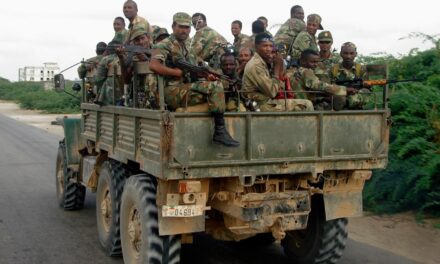BAHIR DAR, EVN (August 25) — The President of the Amhara Region tendered his resignation during the council’s emergency meeting held today in Bahir Dar. The resignation unfolds against a backdrop of severe political and security challenges in the region.
Addressing the ongoing crisis in the region, Dr. Yilkal Kefale, who has served the area for 23 months, pointed out that the absence of a cohesive vision, coherent strategy, and shared objectives among the government’s leadership has posed substantial barriers. He underscored that these internal schisms have hindered progress, notably in grappling with the pressing concerns confronting the Amhara people.
Dr. Yilkal underscored that the intricate political struggle of the Amhara people has been aggravated by disjointed leadership. He stressed the urgency of skill, wisdom, and unity to surmount centuries-long social oppression endured by the Amhara population. He also highlighted the lingering scars left by the northern Ethiopian conflict and ensuing civil unrest, which have further exacerbated the region’s challenges in the aftermath of the Tigray war defense efforts.
Recognizing significant strides in sectors including health, education, agriculture, and tourism over the preceding two years, Dr. Kefale attributed the surge in lawlessness to the region’s prevailing challenges. He deplored the region’s spiral into conflict and indicated that the deliberations of the day had played a pivotal role in shaping his decision.
Turning to concerns regarding identity and boundaries, particularly relating to Welkait and Reya, Dr. Kefale disclosed that the state government had undertaken substantial groundwork in collaboration with federal entities and relevant institutions. He advocated for a comprehensive approach to the region’s difficulties, emphasizing the paramount importance of pursuing peace and stability.
Expressing remorse over recent shifts in regional alliances, Dr. Kefale urged sustained endeavors to honor commitments made to the Amhara populace. He accentuated the necessity of distinguishing allies from adversaries within the political landscape and cautioned against dependence on external armed forces, drawing parallels with strife-ridden nations.
Dr. Yilkal reiterated his dedication to the region’s welfare, conceding that while the journey had been arduous, his decision to step aside was rooted in the conviction that the region necessitated a renewed perspective and leadership. The council, which accepted his resignation, also acknowledged the demand for a change in leadership.
As the Amhara Regional Council navigates a turbulent socio-political terrain, Dr. Yilkal’s departure signals a noteworthy shift in leadership dynamics amid the backdrop of the federal government’s impromptu military operation ostensibly aimed at disarming the Fano militia. The legacy of his tenure, marked by achievements as well as internal discord, is poised to mold the region’s trajectory in the impending months.
Amidst heightened scrutiny, the Federal Government is facing criticism for marginalizing Amhara interests in its overtures to the TPLF. Recent weeks have witnessed the detention of tens of thousands of ethnic Amharas in makeshift and concentration camps. Escalating confrontations between Fano and the federal government have reportedly led to thousands of casualties including scores of civilians killed in drone attacks.








